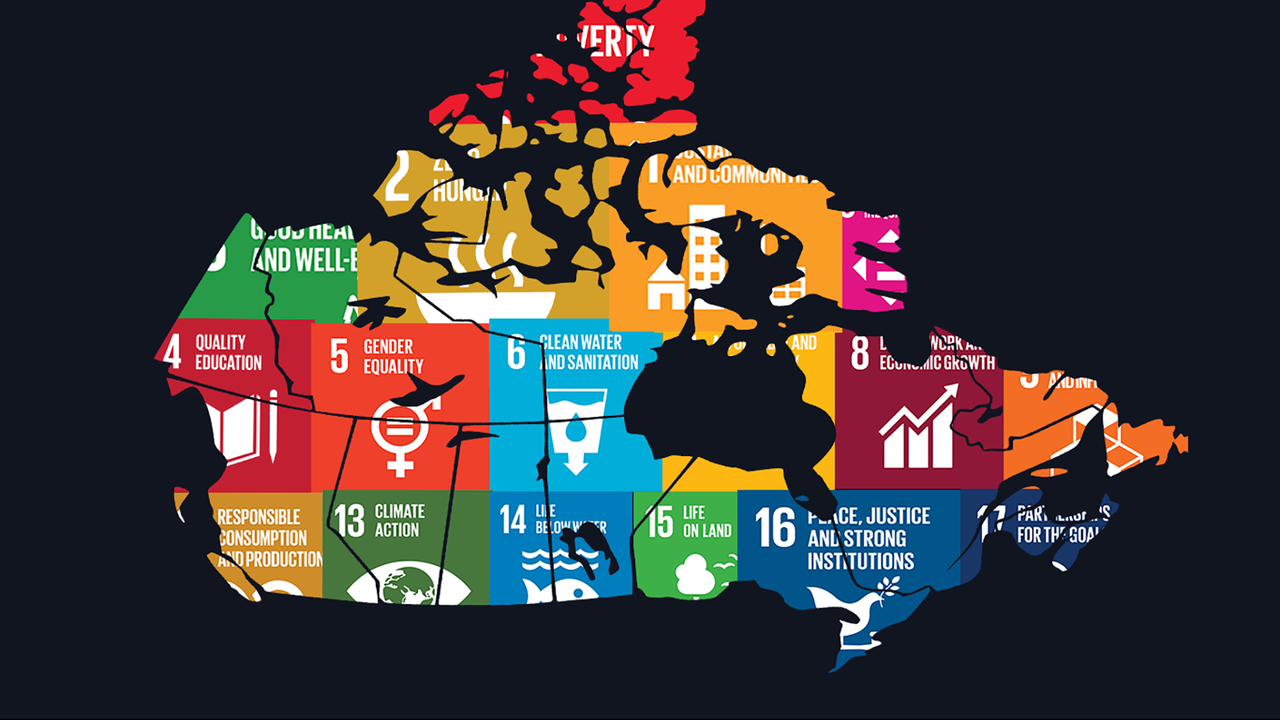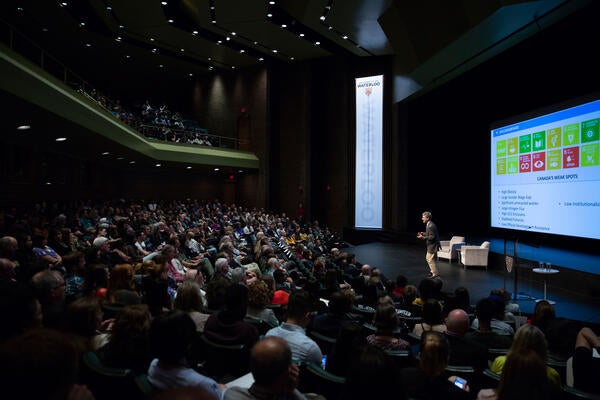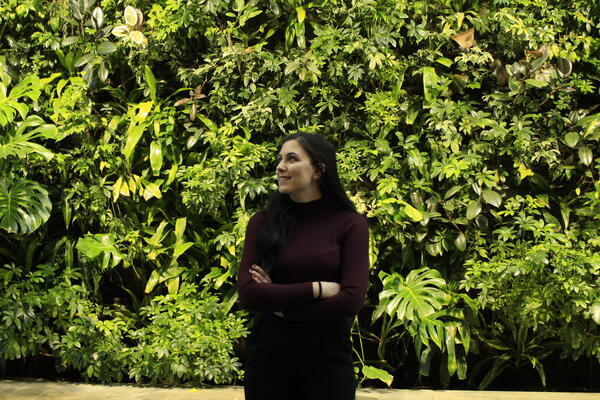
Want to change the world? There’s a map for that
Waterloo’s partnership with the United Nations lays out a course for a better future we can all achieve together

Waterloo’s partnership with the United Nations lays out a course for a better future we can all achieve together
By Peter Stirling Communications Officer, Faculty of EnvironmentThinking about the challenges we face as a society can be overwhelming — almost paralyzing. When so much needs to be done, where do you start?
The United Nations (UN) believes you’ll start here on campus and where you live. They’ve identified our most urgent challenges and laid them out in a roadmap of 17 goals we can all work to achieve by 2030. The Sustainable Development Goals, or SDGs, cover everything from No Poverty (SDG 1) to Quality Education (SDG 4) and Life Below Water (SDG 14).
 To support the UN’s SDG initiative, the University of Waterloo is hosting the Sustainable Development Solutions Network (SDSN) Canada; a network of universities, colleges, research centres, and knowledge institutions developing practical solutions for sustainable development.
To support the UN’s SDG initiative, the University of Waterloo is hosting the Sustainable Development Solutions Network (SDSN) Canada; a network of universities, colleges, research centres, and knowledge institutions developing practical solutions for sustainable development.
“The recent United Nations Intergovernmental Panel on Climate Change (IPCC) report scared a lot of people,” says Vanessa Schweizer a professor in Waterloo’s department of Knowledge Integration. “Suddenly, Climate Action (SDG 13) seemed like the highest priority. We need to set lower global targets for greenhouse gas emissions. Things couldn’t be simpler, right?”
Actually, that is an oversimplification, says Schweizer, who focuses on cross-disciplinary decision making. But she’s eager to explain why the SDGs must be tackled together.
“We must see the SDGs as connected challenges needing to be solved in concert,” she says. Going back to the climate threat, she points to how the complexity of the problems may simply be hard to imagine. “We picture a future of dodging tornados, paddling flooded streets, and fleeing raging fires,” she says of the threat of climate change. “But climate catastrophe is just as much due to poor socio-economic decisions as physical hazards.”
There is no doubt, socio-economic problems like climate refugees, scarcity, economic collapse and political instability are all potential outcomes from sea level rise. That’s the bad news.
The good news is that while the problems are connected, the solutions can be too. This means that by working toward any one of the SDGs, there are likely opportunities to help advance all of them.
“For example, we have seen two isolationist governments in the US and Brazil challenge international climate agreements (Climate Action SDG 13). These governments have sprung up in countries with large wealth inequality (Reduced Inequalities SDG 10),” says Schweizer, adding, “All else being equal, population growth would be another factor warming the planet. However, it is proven that in countries where Gender Equality (SDG 5) is more pronounced, there is less population growth. But attaining gender equality often requires good governance (Peace, Justice and Strong Institutions SDG 16).
“Most of us are not climate scientists, but each of us can reduce inequality, fight poverty, reduce hunger and work toward gender equality. In doing so, we are fighting climate catastrophe, even without Climate Action (SDG 13) specifically in mind,” she says.
All across Waterloo’s campus, researchers, staff and students from every faculty are recognizing our interconnected fight for more just future, and exploring ways their work applies to the SDGs.
In their 2018 annual report the Waterloo Institute for Nanotechnology (WIN) recognized the important role their technology plays in achieving the SDGs. “These innovations will provide solutions to global challenges in energy, water, public health and more,” wrote Sushanta K. Mitra, executive director, in the reports welcome message.
The report goes on to highlight work being done by several researchers and how it relates to the SDGs. Shirley Tang, an associate professor in the department of chemistry, is helping realize Good Health and Well-Being (SDG 3). Affordable and Clean Energy (SDG 7) is the focus of working being done by Professor Dayan Ban from Electrical and Computer Engineering who is developing nanogenerators that could one day power our personal devices without any carbon emissions.
Waterloo students, whose fate depends most on us achieving the SDGs, are emerging as the most potent cross-disciplinary leaders on campus.

Read more
Waterloo named home for Sustainable Development Solutions Network Canada, in partnership with WGSI.

Read more
Calling youth to work with corporations instead of against to improve sustainable practices

Read more
Upside Robotics secures new funding to accelerate the future of sustainable farming
The University of Waterloo acknowledges that much of our work takes place on the traditional territory of the Neutral, Anishinaabeg, and Haudenosaunee peoples. Our main campus is situated on the Haldimand Tract, the land granted to the Six Nations that includes six miles on each side of the Grand River. Our active work toward reconciliation takes place across our campuses through research, learning, teaching, and community building, and is co-ordinated within the Office of Indigenous Relations.